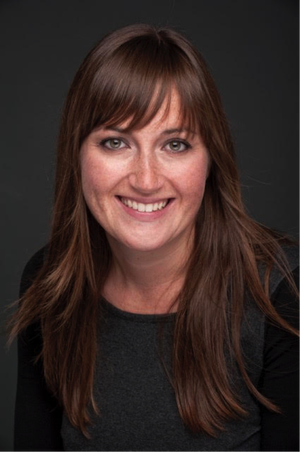
Quixada is a Carsey Fellow for New Hampshire Listens. Quixada’s research interests include financial aid policy and how the cost of college influences access to higher education, both in America and abroad. She also studies civic engagement, public deliberation, and citizenship and democracy in education. She has worked with New Hampshire Listens at the Carsey School of Public Policy since 2011, wearing various hats from facilitator to researcher to report writer. Most of her work with New Hampshire Listens focuses on how to measure and document the impact of public engagement on individuals and communities.
- What are your responsibilities in your current position? What have been some of your greatest accomplishments and challenges as a professional in the field of communications?
I wear a few hats related to the Communications field, particularly around deliberative democracy and public engagement. These fields are really focused on issues of improving democracy, particularly by building more inclusive, collaborative processes where we bring multiple stakeholders to the table to make decisions and policies that affect the public. I currently work as an evaluation specialist for New Hampshire Listens, a public engagement organization at the University of New Hampshire facilitating small group dialogue that brings everyday people and public leaders together to collaboratively problem solve and shape decisions. I'm also completing my PhD in Education at UNH; my dissertation focuses on how public schools and universities can use public engagement aimed at school reform. You can read more about it here.
In related work, I consult with Everyday Democracy on a project focused on building community engagement in public schools across New England. I've also had the opportunity to consult with the Deliberative Democracy Consortium this year, which represents a network of global practitioners and scholars involved in growing deliberative democracy in their local communities and beyond.
- In what ways do you use your communication education in your career?
My experience as a Master's student at UIUC's Communication program have laid the foundation for my current work. The department's focus on Habermas and other democratic scholars have directly informed my understanding of deliberative democracy. A lot of my work focuses on creating opportunities for populations who have been historically marginalized or underrepresented to participate in policy making. I took a class with Bob McChesney where we focused on critical scholars in communication, and I reference these scholars like C.Wright Mills and Neil Postman almost weekly. I really expanded my understanding of power, privilege, and inequality in that course and other courses in the department.
- What advice would you give to current communication students about the professional realm?
The communication field, like many academic fields, covers so much ground, from interpersonal communication to media policy and reform. Depending on your interests, there are multiple directions you can take with a communication degree. However, I don't know if the professional world actually understands all the skills you have developed in a communication program, including practical skills like public speaking and writing and big picture thinking skills like an understanding of power and inequality. None of the jobs I have taken on directly advertised the need for a communication specialist - I had to translate how these skills and ideologies would enhance my work. So you may want to be talking with your peers and professors now about how to articulate all that you have learned in the communication program. In my opinion, it takes a while to learn how to construct your narrative that translates your studies to the workforce, so it's never too early to start!